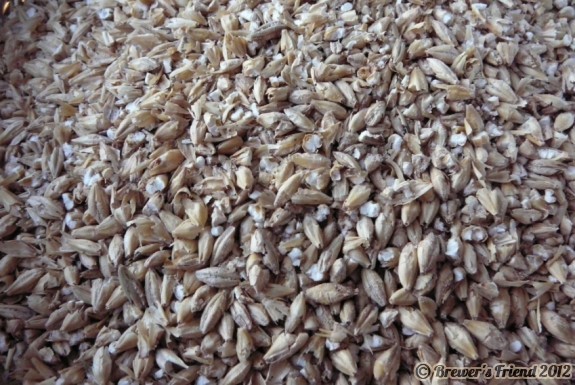mofox1
Wubba lubba dub dub!
Hit my first all grain yesterday and was a bit suprised at the low efficiency... still wondering what went (slightly) pear shaped.
According to beer smith, I should have got an OG of about 1.045 but I ended up with 1.038. Is a 7 point difference enough to worry about?
Simple enough recipe (20L batch):
4.00 kg Pale Malt (Joe White)
0.22 kg Dark Crystal (220 EBC)
0.20 kg Crystal (50 EBC)
Hopped with Amarillo, 25g for 40min, 15g @ flameout & 10g dry hopped.
Cube chilled (15L) and added 5L cold to the fermenter.
Mash/boil details:
Mashed in with 11L, and mashed out/batch sparged with another 11L. Temp during mash started at 67deg C and finished at 64deg C over 70 mins. Mash out was ~75deg C.
The mash tun has less than a cup of dead space, and I reckon I lost about 1L for kettle trub and/or floor spillage (also a first attempt for siphoning...).
I didn't do a starch test, or take the SG of the first runnings or pre-boil, which in retrospect may have been useful now. I also don't know exactly how much I ended up with pre-boil, except that post boil was around 14 - 15 L (had to add ~1L boiled water to the cube and squeeze the buggery out of it as it holds 16L hot).
So the question is - what would account for the low OG? As far as I can tell, it should only be poor conversion, since there wasn't too much 'unrecoverable' liquid anywhere.
The mash tun has a square 36x36 cm footprint (40L esky), so maybe as a small batch the low grain depth may have been an issue?
Any tips would be appreciated!
Cheers,
Mick
According to beer smith, I should have got an OG of about 1.045 but I ended up with 1.038. Is a 7 point difference enough to worry about?
Simple enough recipe (20L batch):
4.00 kg Pale Malt (Joe White)
0.22 kg Dark Crystal (220 EBC)
0.20 kg Crystal (50 EBC)
Hopped with Amarillo, 25g for 40min, 15g @ flameout & 10g dry hopped.
Cube chilled (15L) and added 5L cold to the fermenter.
Mash/boil details:
Mashed in with 11L, and mashed out/batch sparged with another 11L. Temp during mash started at 67deg C and finished at 64deg C over 70 mins. Mash out was ~75deg C.
The mash tun has less than a cup of dead space, and I reckon I lost about 1L for kettle trub and/or floor spillage (also a first attempt for siphoning...).
I didn't do a starch test, or take the SG of the first runnings or pre-boil, which in retrospect may have been useful now. I also don't know exactly how much I ended up with pre-boil, except that post boil was around 14 - 15 L (had to add ~1L boiled water to the cube and squeeze the buggery out of it as it holds 16L hot).
So the question is - what would account for the low OG? As far as I can tell, it should only be poor conversion, since there wasn't too much 'unrecoverable' liquid anywhere.
The mash tun has a square 36x36 cm footprint (40L esky), so maybe as a small batch the low grain depth may have been an issue?
Any tips would be appreciated!
Cheers,
Mick





